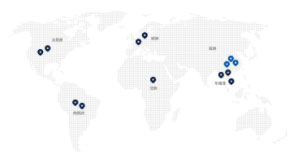Innovating diagnostic technologies to promote precision medicine and personalized treatment
Companion diagnostics serves as a companion to precision medicine, coexisting with targeted therapies and immunotherapies. Companion diagnostics (CDx) refers to a diagnostic test used in conjunction with a therapeutic product to determine the appropriateness of the therapeutic product for a specific individual. Generally, CDx is developed in parallel with the drug, aiding in the selection or exclusion of patients for treatment trials based on their biological characteristics. CDx relies on companion biomarkers to prospectively predict potential responses or severe toxicities.
Teddylab, based on immunohistochemical technology, has the capability to develop CDx solutions tailored to drugs. CDx reagents are crucial tools for commercializing and targeting drugs, possessing universal clinical value and demand. The development of CDx kits needs to be synchronized from Phase I of clinical trials, facing issues such as long cycles and high difficulty. Responding to the needs of innovative pharmaceutical companies, Teddylab has developed detection technologies for multiple biomarkers based on immunohistochemical technology. The development of CDx reagents involves stages such as antibody screening, staining procedure optimization and validation, clinical trial application, and final submission. Through independent innovation, Teddylab optimizes the R&D process, possessing advantages in antibody screening and staining procedure optimization, which not only meets detection requirements but also shortens development time. The process is briefly described as follows: In the antibody screening stage, appropriate cell lines and normal tissue controls are selected based on biomarker characteristics to screen out antibodies with high sensitivity and specificity for entry into the staining procedure optimization stage. Subsequently, a large batch of various normal tissues and high-throughput indication tumor tissues are used to optimize the staining procedure.







